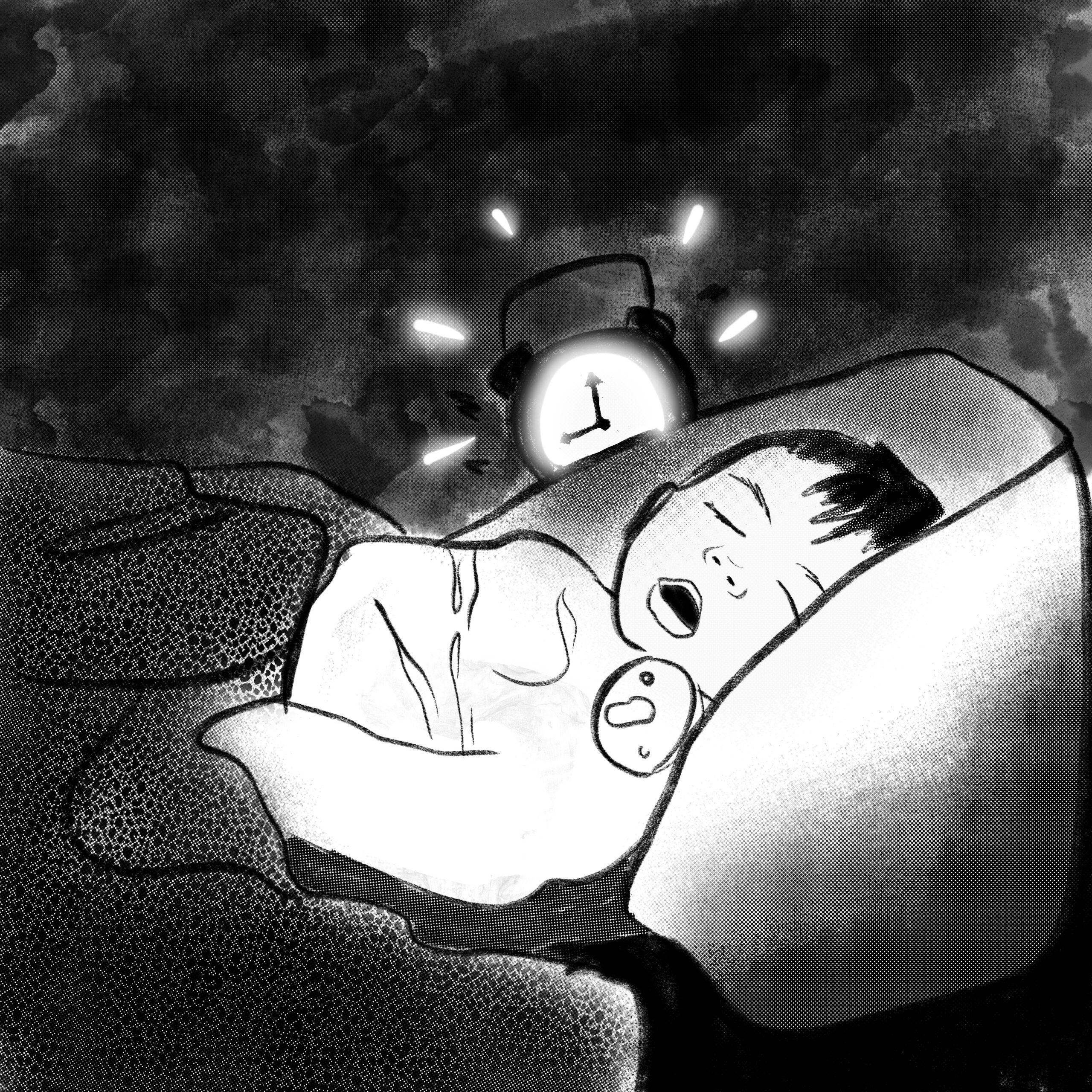Experts advise consistency as students struggle with sleep schedules
The News talked to sleep experts to give students advice on how to adopt healthier sleeping habits.

Melany Perez
Sleeping through an alarm is a rite of passage for Yale students.
The News spoke to sleep experts at Yale to learn how students can adopt healthy sleeping habits and how their daily activities might be negatively impacting their sleep.
“Making sure that [students] have a dark, quiet place to sleep with, and the opportunity to sleep are main things,” Dr. Brian Koo, who studies neurology and sleep medicine at the School of Medicine, told the News.
Some students believe that if they are tired when they wake up from a full night of sleep, it is because they woke up in the middle of a sleep cycle. However, sleep schedules don’t run in perfect 90-minute cycles, according to Dr. Lynelle Schneeberg, whose research at the School of Medicine includes circadian sleep disorders. It is most valuable for students to prioritize their sleep health, rather than worrying about where in their sleep cycle they wake up, she noted.
It is crucial for students to maintain a regular bedtime and wake-up time, Schneeberg said. Students’ bodies release sleep and wake-up hormones, and with an irregular sleep schedule, the body becomes confused, like when someone has jetlag. It doesn’t matter if a student is getting eight hours of sleep every night because if those eight hours are not over a consistent period of time, the student won’t feel as well-rested when they wake up.
“It’s not uncommon to keep really widely varying schedules in your college years, but that will make you feel really tired,” Schneeberg said.
According to her, the amount of sleep people require varies, and it is important for a student to give their body the correct amount of sleep it needs. Some people function well off of six hours of sleep, and they would not be as productive with eight hours. Likewise, when people who need eight hours of sleep only get six hours of sleep, they might feel worse.
Schneeberg said the average person needs around seven hours of sleep. If a student wakes up spontaneously without an alarm, that is a good indication they have gotten enough sleep.
Adriana Kell ’28, like many students at Yale, wakes up with her alarm every morning during the school week.
“I put it on the highest volume because I’m a very heavy sleeper,” Kell said. “It’s a very annoying alarm, and I put, like, four.”
Kell said that she usually gets five or six hours of sleep daily and her hours of sleep vary per night. If she has a test the next day, she might try to go to sleep earlier. When she has a 9 a.m. class, she usually gets up around 8 a.m. When class doesn’t start until 10:30, she said she sleeps until around 9:40.
Ellie Koo ’28 tries to wake up at the same time every morning. She has a 9:25 a.m. class four days of the week, and next semester, she hopes to continue this pattern because it encourages her to go to sleep around the same time — between midnight and 1 a.m. — every night.
“I really do think that helps me have more routine in my day,” she said.
Koo sometimes takes naps during the day, but she finds that they are most productive earlier in the day. Otherwise, they mess with her sleep schedule.
Schneeberg said that napping for under an hour can help students gain energy but only in certain contexts. If a student naps after mid-afternoon, it’s likely to affect their sleeping and will not help them feel as energized.
Schneeberg also advised students to create a space designated for sleeping. Some students talk to their friends, play games or study in bed, and then the brain doesn’t fully associate the bed with sleeping, which can consequently make it harder to fall asleep.
Koo said that she finds that doing work in bed makes her more tired. She usually ends up falling asleep before finishing the work she needed to do.
She reported feeling progressively more tired throughout the week, as her lack of sleep builds on itself.
“It’s not going to be really a long term build up, but people tend to get into habits,” Dr. Brian Koo said. “They build these habits, and then they’re kind of difficult to break.”
The earliest start time for undergraduate courses is 8:25 a.m.







